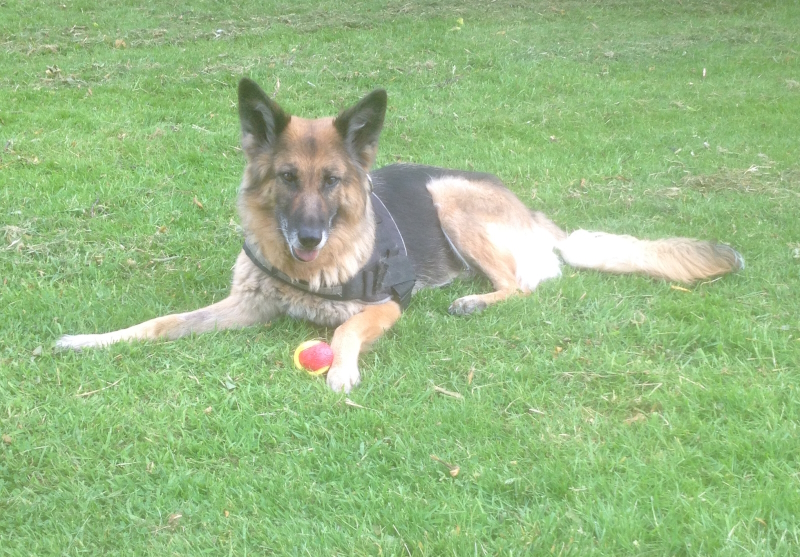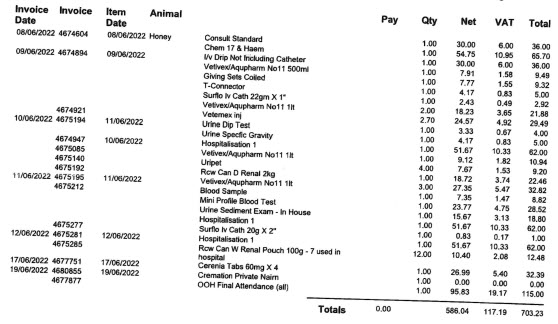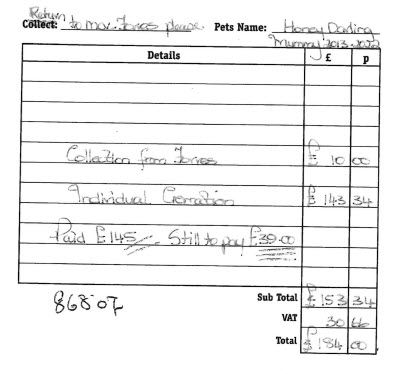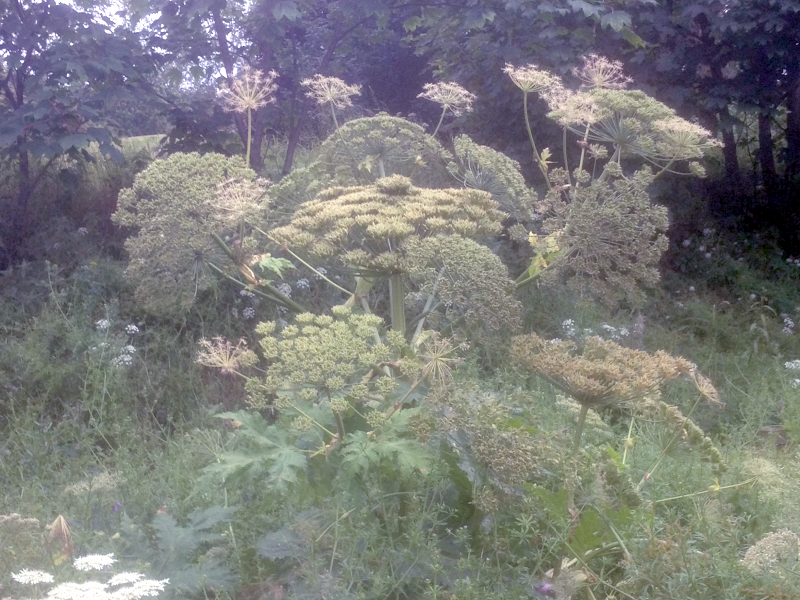Usually, a headline like that warns you about possible dangers from your own carelessness.
It’s much worse than that here, unfortunately.
This article contains a warning about how you – and especially your pets – might be at risk from lack of care on the part of your own local authority.
The practices of Moray’s local authority in relation to weed killing mean pet owners must be extra vigilant.
Rinaldo Coluccia’s 8-year-old German Shepherd dog, Honey, died as a result of ingesting Glyphosate (a herbicide) beside “The Walkies” path (by the A96) in Forres.

The Council had treated the area in order to destroy Giant Hogweed plants.
The Council’s risk assessment provided that warnings should be given to the public where areas had recently been sprayed. “Control measures” within the risk assessment included: “Keep pets on lead when passing area (sic) which have had herbicide application recently.“, and “Prevent pets from eating/chewing vegetation applied with herbicide.“

Unfortunately, it appears that these control measures were not applied by the Council in practice.
On 12 May 2022, Mr Coluccia was walking his dog at The Walkies path possibly within 15 minutes -and probably within 30 minutes – of the completion of weedkilling treatment by the Council.
But there were no signs or notices to warn him of the dangers there from “recent application of herbicide”.
Honey had a habit of eating grass and it seems that contaminated grass or plants caused the illness from which she subsequently died.
Due to deterioration in kidney function and continuing weight loss, she had to be put to sleep on 19 June 2022.
Mr Coluccia complained to the Council.
He also obtained supportive evidence from a local vet as to the cause of Honey’s illness and death.
Claims arising from the death of animals tend to be modest in value.
This is because there is no claim for “loss of society” in respect of a family pet in the way that there is for the death of a close relative.
Mr Coluccia’s claim was limited to the veterinary bills and cremation costs – about £900.


As a non-personal injury claim, legal costs recovery options are limited.
It would not normally be economic to instruct a solicitor to take a claim like this to the Sheriff Court.
Despite this, given the clear public safety implications, Grigor & Young agreed to help Mr Coluccia with his claim.
First of all we intimated a formal claim to the Council for compensation.
Then, when liability was denied, we raised a Simple Procedure action against the Council at Elgin Sheriff Court.
As it turned out, the Council did not defend the court action and so must be taken to have admitted the grounds of claim.

The Sheriff at Elgin granted decree against the Council on 09 June 2023 in respect of the full sum claimed, interest and court expenses/costs.
Mr Coluccia has received payment in full.
What does this mean for public health and safety in Moray?
The Council have devised a system, based on risk assessment, designed to protect the public and animals from possible harm from weed killing treatment carried out by the Council.
The council‘s system sets out clear control measures in the form of, presumably, warning notices, which are meant to be put out during spraying of herbicide and left in place for a period of time afterwards until the contamination risk is sufficiently low.
If, as seems to be the case, the Council do not have signs in place, other than during the time when spraying is taking place, this is not adequate or safe.
Because the Council don’t follow the recommendations their own risk assessment, people and their pets are exposed to danger of contamination which, in the case of Honey Coluccia, resulted in her death.
Unfortunately, there is no evidence to suggest that the Council have tightened up their practices in any way, as a result of the outcome of Mr Coluccia’s claim.
In the present circumstances, in Moray, you would be well-advised to keep pets and other animals (and humans!) away from obvious weedkilling targets such as Giant Hogweed. You cannot be sure that there has not been recent weedkiller spraying in the vicinity by the Council.
Mr Coluccia is very keen to ensure that no one else has to go through what he has suffered in losing such a faithful and loving friend as Honey.
He said: “I was very close to my dog, Honey. She had a lovely personality and, being calm but assertive, made an excellent guard dog. Her death was so unexpected and so unnecessary. It has left a deep hole in my life and it is still something I am coming to terms with emotionally and psychologically. I hope my successful claim through Elgin court will result in the local authority getting a grip on things at last and actually following their own procedures properly – so that no animal has to go through what Honey suffered and no pet owner has to endure the pain of losing a dear family member so needlessly.”
